Featured
 The Dark Century. By David Brooks / NYT
The Dark Century. By David Brooks / NYT
In the early 1990s I was a roving correspondent for The Wall Street Journal, based in Europe. Some years it felt as if all I did was cover good news: the end of the Soviet Union, Ukrainians voting for independence, German reunification, the spread of democracy across Eastern Europe, Mandela coming out of prison and the end of apartheid, the Oslo peace process that seemed to bring stability to the Middle East.
I obsess about those years now. I obsess about them because the good times did not last. History is reverting toward barbarism. We have an authoritarian strongman in Russia threatening to invade his neighbor, an increasingly authoritarian China waging genocide on its people and threatening Taiwan, cyberattacks undermining the world order, democracy in retreat worldwide, thuggish populists across the West undermining nations from within.
What the hell happened? Why were the hopes of the 1990s not realized? What is the key factor that has made the 21st century so dark, regressive and dangerous? Read more
Related: We redefined Blackness as a world and a gift. By Dante’ Stewart / CNN
Political / Social
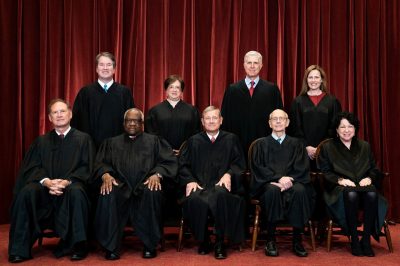 Unequal Justice: How the Highest Court Is Advancing Voter Suppression. By Bill Blum / the Progressive
Unequal Justice: How the Highest Court Is Advancing Voter Suppression. By Bill Blum / the Progressive
If I asked you to name the most important opinion handed down by the U.S. Supreme Court during Earl Warren’s sixteen-year tenure (1953-69) as Chief Justice, you’d probably cite Brown v. Board of Education, the landmark, unanimous ruling that ended legal segregation in public schools. Flash forward to the present day, and the Supreme Court has shifted on its axis. Now dominated by conservatives, including three hard-right members nominated by President Donald Trump, the court appears determined to turn back the clock on election law to the early 1950s and undo the last vestiges of Warren’s voting rights legacy. Read more
Related: Trump judges are tag-teaming the Voting Rights Act. By Ruth Marcus / Wash Post
Related: In Nashville, a Gerrymander Goes Beyond Politics to the City’s Core. By Michael Wines / NYT
 You Just Can’t Tell the Truth About America Anymore. By Jamelle Bouie / NYT
You Just Can’t Tell the Truth About America Anymore. By Jamelle Bouie / NYT
There is a dangerous censoriousness pulsing through American society. In small towns and big cities alike, would-be commissars are fighting, in the name of a distinct minority of Americans, to stifle open discussion and impose their views on the community at large. Dissenters, when they speak out, are hounded, ostracized and sometimes even forced from their jobs.
Defenders of this push for censorship say they are simply working to protect the nation’s children from prejudice, psychological distress and inappropriate material. “To say there were slaves is one thing, but to talk in detail about how slaves were treated, and with photos, is another,” said Tina Descovich, a leader of Moms for Liberty, a conservative group that seeks to enshrine “parental rights” into law. Read more
 Race to the bottom in the ‘Sunshine State.’ By Glenn C. Altschuler / The Hill
Race to the bottom in the ‘Sunshine State.’ By Glenn C. Altschuler / The Hill
In treating social and industrial diseases, the great jurist Louis Brandeis once wrote, “sunlight is the best disinfectant.” Judged by that standard, Florida can no longer credibly claim to be “The Sunshine State,” given its determination to lead what is becoming a nationwide drive to regulate discussions of racial discrimination in our nation’s classrooms.
In June 2021, Gov. Ron DeSantis blasted “Critical Race Theory” — which is not taught in Florida’s public schools — for encouraging “kids to hate our country and to hate each other. It is state-sanctioned racism…” At his behest, the state’s board of education banned assertions “that racism is not merely the product of prejudice, but is embedded in American society and its legal systems in order to uphold the supremacy of white persons.” The board also barred the use of primary or secondary sources from the Pulitzer-Prize winning 1619 project that examines the implications of the arrival of the first slave ship in North America. Read more
Related: Black Florida senator leads vote-by-mail campaign ahead of midterm elections. By
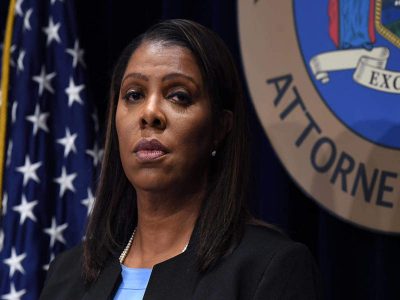 “I Will Not Bow. I Will Not Break”: It’s Been a Hell of a Week for Letitia James. By Chris Smith / Vanity Fair
“I Will Not Bow. I Will Not Break”: It’s Been a Hell of a Week for Letitia James. By Chris Smith / Vanity Fair
The New York attorney general ramped up her reelection bid on the back of some major moves in her investigation of the Trump Organization, and blasted Andrew Cuomo along the way.
Tish James was getting worked up. On Thursday morning, the New York state attorney general was in midtown Manhattan, at the state Democratic Party convention, to accept the party’s official endorsement of her reelection campaign. After taking the hotel ballroom stage to the sounds of Lizzo’s “Good as Hell,” James lit into her biggest adversaries, past, present, and future, starting with Andrew Cuomo, the former governor she drove from office last August with a report accusing him of sexual harassment. “He is now claiming the mantle of victim and disgracefully attacking anyone in his path, pushing others down to prop himself up. I will not bow. I will not break,” James said. “I will not be bullied by him or Donald Trump.” Read more
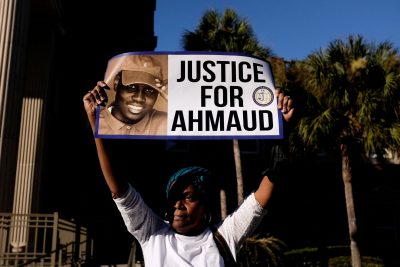 The slurs and texts of Ahmaud Arbery’s killers reflect the persistent racism in our society. By Eugene Robinson / Wash Post
The slurs and texts of Ahmaud Arbery’s killers reflect the persistent racism in our society. By Eugene Robinson / Wash Post
It is not really surprising that the three men convicted of killing Ahmaud Arbery, a Black man whose fatal mistake was jogging through a White neighborhood, would share a racist worldview. But the casual virulence of their racism — revealed in a Georgia courtroom this week — is truly shocking, even to someone such as myself who grew up under the boot of Jim Crow. A text exchange involving Travis McMichael included a photo of a disabled man wearing a T-shirt that said “At least I’m not a [n-word].” And in his social media accounts, FBI analysts — who unearthed this cornucopia of racism — found a video clip of a Black child dancing that had been overdubbed with a racist song titled “Alabama [n-word].” Are you sensing a pattern here? Read more
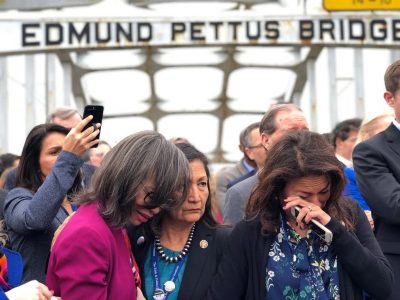 Black and Native people are kindred spirits in adversity. Deb Haaland understands that. By Jonathan Capehart / Wash Post
Black and Native people are kindred spirits in adversity. Deb Haaland understands that. By Jonathan Capehart / Wash Post
The first time I saw Deb Haaland cry, she was a congresswoman from New Mexico, and she was standing on the Edmund Pettus Bridge in Selma, Ala. So it wasn’t a surprise to watch tears well this week for Haaland, now the interior secretary, as she stood outside the Mississippi courthouse that once set free the murderers of Emmett Till. For Haaland, the first Native American to serve as a Cabinet secretary, visiting these sites doesn’t just mean remembering the injustice inflicted upon Black people; it means walking the ancestral lands that were home to Indigenous people long before the slave ships came. Long before the boundaries between the races were drawn, and then reinforced by Jim Crow. She knows what it means to come from people who experienced prejudice and violence — the kind of violence that killed Till when he was just 14 years old. Read more
 Child poverty spiked by 41 percent in January after Biden benefit program expired, study finds. By Jeff Stein / Wash Post
Child poverty spiked by 41 percent in January after Biden benefit program expired, study finds. By Jeff Stein / Wash Post
The number of American children in poverty spiked dramatically in January after the expiration of President Biden’s expanded child benefit at the end of last year, according to new research released on Thursday. The Center on Poverty and Social Policy at Columbia University said that the child poverty rate rose from 12 percent in December 2021 to 17 percent last month, an approximately 41 percent increase. The study found that an additional 3.7 million children are now in poverty relative to the end of December, with Black and Latino children seeing the biggest percentage point increases. The White House was unable to secure an extension of the program amid a disagreement over its broader economic proposal with Sen. Joe Manchin III (D-W.Va.), who raised multiple objections to the child benefit and said it was discouraging parents from working. Read more
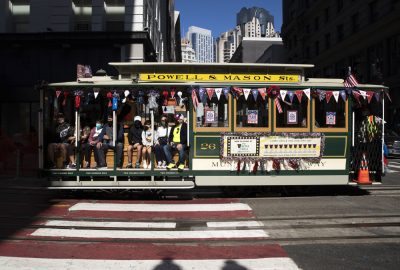 California bills aim to curb anti-Asian attacks against women, vulnerable groups. By Claire Wang / NBC News
California bills aim to curb anti-Asian attacks against women, vulnerable groups. By Claire Wang / NBC News
Two-thirds of anti-Asian incidents are reported by women, and a majority of them take place in public spaces or businesses, according to a study.
California lawmakers, working with the nonprofit groups Stop AAPI Hate, introduced two bills Thursday that aim to combat harassment and violence against women and other vulnerable populations in public spaces, including streets and transit platforms. Advocates say the proposed pieces of legislation, shared first with NBC Asian America, are some of the first in the country to frame street discrimination and harassment as a public health issue, rather than a criminal one. The bills come at a time when attacks against Asians in the United States are increasing, and they specifically aim to curb the violence. Read more
 Breast cancer kills more Black women. A new study may help show why. By Nada Hassanein / USA Today
Breast cancer kills more Black women. A new study may help show why. By Nada Hassanein / USA Today
New research showing genetic differences in breast cells suggests standard treatments for breast cancer are less effective for Black women, who disproportionately suffer and die from the disease. The new study from the Sanford Burnham Prebys Medical Discovery Institute also highlights the need to include more Black people in trials, experts say. More inclusive data is essential to help fill knowledge gaps and improve treatment plans. “We really need to take that on board and say, ‘Are we doing the best job we can in implementing precision medicine for everyone? Or have we been using a one-size-fits-all approach for a little too long?’” said lead author and cancer researcher Svasti Haricharan. Read more
 The American Psychological Association’s apology for its racial wrongs. By Josuya Stein / Slate
The American Psychological Association’s apology for its racial wrongs. By Josuya Stein / Slate
The American Psychological Association adopted an apology resolution, noting that it “was complicit in contributing to systemic inequities, and hurt many through racism, racial discrimination, and denigration of people of color, thereby falling short of its own mission to benefit society and improve lives.” The APA was in good company: A range of professional organizations have adopted resolutions or policy changes over the past few years. The American Medical Association put out such a resolution in 2020; the American Planning Association and the American Institute of Certified Planners did, too. So have the American Academy of Pediatrics, the Institute of Electrical and Electronics Engineers, and other bodies. Read more
Ethics / Morality / Religion
 The good, the bad and the factual: Seeing American history through a biblical lens. By Thomas Reese / NCR
The good, the bad and the factual: Seeing American history through a biblical lens. By Thomas Reese / NCR
The debate over how to teach American history is dividing the country. One side is accused of pretending that America never did anything wrong, while the other side is accused of claiming that America never did anything right. Many on the conservative side are pious Christians who take their Bible seriously, so I would suggest we look to the Bible about how to talk about the history of the nation. Every story in the Bible may not be historically accurate, but together they teach a greater truth: Humans and their institutions constantly fail. The purpose of Bible history is not to make the Jewish people feel good about themselves, but to teach them to do better in the future. American history should do the same. Read more
Related: Could Christian Nationalists Revive Trump’s Big Lie in 2024? Michael Tomasky / TNR
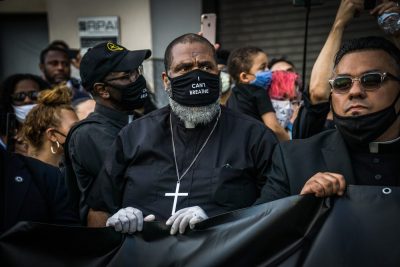 Deciphering the Ancestral Common Ground of Black Religion. By James Padilioni Jr / AAIHS
Deciphering the Ancestral Common Ground of Black Religion. By James Padilioni Jr / AAIHS
Pastors, leaders and local church members held a prayer walk in wake of George Floyd murder, Bronx, New York, June 10, 2020,
Religious studies scholars Talal Asad and Tomoko Masuzawa have identified the Protestant bias that undergirded the construction of religion as an analytical category of both European thought and colonial administration during the long nineteenth century. Premised upon a universalism that espouses religion as transcendence, Eurocentric definitions of religion place[d] greater weight upon such rationalized, thought-oriented creeds and expressions of belief versus those kinesthetic, intuitive, ritual and habitual practices of piety that makeup the indigenous, and later Diasporic, traditions of Africa, Austral, Asia, and the Americas (and pre-Christian Europe for that matter). Read more
 Why Hindus should celebrate Black History Month. By Murali Balaji / Religion News
Why Hindus should celebrate Black History Month. By Murali Balaji / Religion News
Hindus have influenced the Black experience in America since W.E.B. Du Bois.
The connections between American civil rights and Hinduism are precisely why more Hindus and Hindu temples should celebrate Black history, not least as a means of understanding their own story in America. It starts with stories such as the Hindu monk Swami Vivekananda’s condemnation of segregated train cars in Tennessee during his visit to the United States in 1894 and his refusal to sit in a train car for whites. He understood that the invitation to sit in a whites-only car was only afforded because of his wealthy white hosts, and was not extended to others with dark skin. Many Americans are aware that the Rev. Martin Luther King Jr.’s life-changing 1959 visit to India sparked a spiritual connection with Mahatma Gandhi. Read more
Related: How Mainstream Mindfulness Erases Its Buddhist Roots. By Funie Hsu / The Progressive
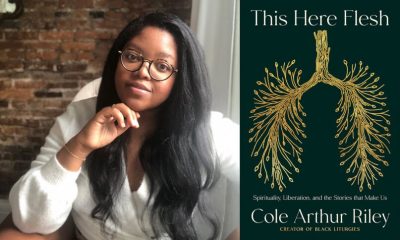 In ‘This Here Flesh,’ Cole Arthur Riley finds the sacred in humanity. By
In ‘This Here Flesh,’ Cole Arthur Riley finds the sacred in humanity. By
Riley’s debut in print, “This Here Flesh: Spirituality, Liberation, and the Stories That Make Us,” that’s about to change. “I think people will be surprised just how much of myself this book contains,” said Riley. Citing influences such as James Baldwin, Toni Morrison, Howard Thurman and Julian of Norwich, Riley explores spiritual questions about dignity, belonging, rage and rest through her family’s stories. Read more
Historical / Social
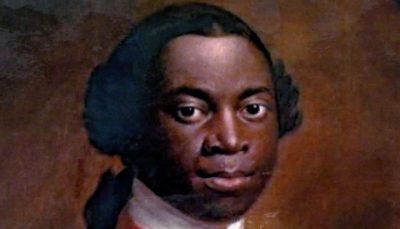 DuSable Museum’s ‘Equiano’ exhibit paired with Instagram film. By Darcel Rockett / Chicago Tribune
DuSable Museum’s ‘Equiano’ exhibit paired with Instagram film. By Darcel Rockett / Chicago Tribune
Black joy. That is what one sees when stepping foot inside the DuSable Museum of African American History’s new “Equiano” exhibit. The exuberance of an average 11-year-old boy of Igbo culture living with his family in Nigeria — playing with his siblings, going about his weeks, sharing his familial experiences filled with art, music and community. This is the origin story of Olaudah Equiano, a youth kidnapped from his West African home in 1756 and enslaved. It’s a tale that unfolds in an 80-minute long film via Instagram story posts on @Equiano.Stories — hundreds of snippets that will be posted (starting Feb. 16). Executive produced by DuSable, followers can watch Equiano’s life and journey as if he is living right now and posting about his days on social media. Read more
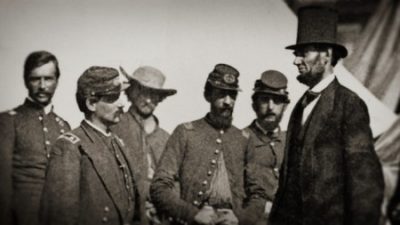 ‘Lincoln’s Dilemma’ Illuminates Honest Abe’s Moment, and Ours: Review. By Daniel D’Addario / Variety
‘Lincoln’s Dilemma’ Illuminates Honest Abe’s Moment, and Ours: Review. By Daniel D’Addario / Variety
The new documentary series “Lincoln’s Dilemma” begins and ends outside of Abraham Lincoln’s era — opening with footage of the siege on the Capitol on January 6, 2021, and concluding only weeks later, with the journalist Jelani Cobb’s observation that the military “occupied” Washington to keep Joe Biden safe at his inauguration. But the point this series makes is that, indeed, we’re hardly outside Lincoln’s moment at all — that the tenuousness and the peril of his era persist, as does the fundamentally unresolved question of race in this country. Read more
Related: Watch CBS Mornings: New docuseries re-examines Lincoln’s legacy. CBS News
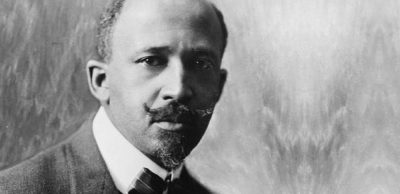 To Fight Attacks on “Critical Race Theory,” Look to Black History. By Keisha N. Blain / The Nation
To Fight Attacks on “Critical Race Theory,” Look to Black History. By Keisha N. Blain / The Nation
There is a long tradition of Black educators fighting attempts to keep America’s true history out of the classroom—one we can all learn from.
While the obsession over “ critical race theory” is a new manifestation, it represents long-standing efforts to keep Black history—and the perspectives of Black writers—out of the classroom. For as long as white politicians have employed these tactics, Black educators in the United States have vigorously resisted. Through a myriad of strategies—including creative lesson plans and the production of anti-racist books and articles—Black educators have worked to counter the spread of misinformation and ensure that students have access to texts and perspectives that represent the diversity of the nation—and the world. Read more
Related: 24 Children’s Books To Read In Honor Of Black History Month. By Taylor Pitman / HuffPost
 A century ago, Mississippi’s Senate voted to send all the state’s Black people to Africa. By Joshua Benton / Wash Post
A century ago, Mississippi’s Senate voted to send all the state’s Black people to Africa. By Joshua Benton / Wash Post
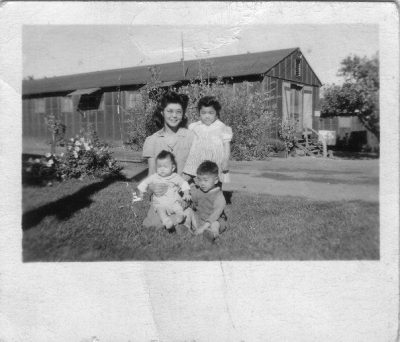 Reliving a dark point in US history: Japanese American incarcerations. By Eve Chen / USA Today
Reliving a dark point in US history: Japanese American incarcerations. By Eve Chen / USA Today
Hanako Wakatsuki has dedicated her life to remembering what her family wouldn’t talk about: the mass incarceration of Japanese Americans during World War II. Eighty years ago, on Feb. 19, 1942, President Franklin D. Roosevelt signed Executive Order 9066, which eventually led to rounding up roughly 120,000 Japanese Americans forced to leave everything behind. “We lost everything, like I lost my heritage,” Wakatsuki said. “I had four generations of my family incarcerated at Manzanar,” one of 10 camps where Americans with at least 1/16th Japanese ancestry were confined. Read more
 50 years later, Aretha Franklin’s ‘Young, Gifted and Black’ teaches love awakens the soul. By Ray Levy Uyeda / NCR
50 years later, Aretha Franklin’s ‘Young, Gifted and Black’ teaches love awakens the soul. By Ray Levy Uyeda / NCR
The title song, “(To Be)Young, Gifted and Black,” belongs to Nina Simone, who wrote and recorded the song in 1969. The words belong to Lorraine Hansberry, who in 1964, told a group of young students who had won an essay contest, “I wanted to be able to come here and speak with you on this occasion because you are young, gifted and Black.” Ms. Simone said to students at Morehouse College, “I remember getting a feeling in my body, and I said, ‘That’s it: to be young, gifted and Black. That’s all.’ And sat down at the piano and made up a tune. It just flowed out of me.” It was music to “make Black children all over the world feel good about themselves, forever.” It is a gift to be Black. The giftedness is inherent. Listen here
Related: Guess who I heard today? Nancy Wilson—and it’s her birthday. By Denise Oliver Velez / Daily Kos
Related: Review: Mary J. Blige’s ‘Good Morning Gorgeous’. Mosi Reeves / Rolling Stone
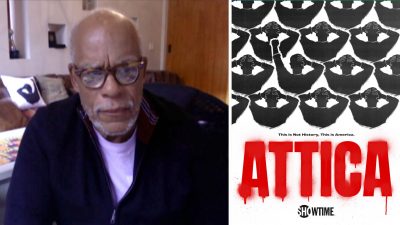 Filmmaker Stanley Nelson on Police Brutality, Black History & His First Oscar Nomination for “Attica.” Amy Goodman / Democracy Now
Filmmaker Stanley Nelson on Police Brutality, Black History & His First Oscar Nomination for “Attica.” Amy Goodman / Democracy Now
As we spend much of today’s show with the legendary filmmaker Stanley Nelson, one of the leading documentarians of our time, we turn to his latest documentary, Attica, with Traci Curry, which tells the story of the deadliest prison uprising in U.S. history, in 1971, when prisoners at the Attica Correctional Facility in upstate New York rebelled on September 9, 1971, overpowering guards, taking over much of the prison to protest conditions, before they were brutally suppressed. Stanley Nelson’s extraordinary new film is nominated for an Academy Award for Best Documentary Feature. Watch here
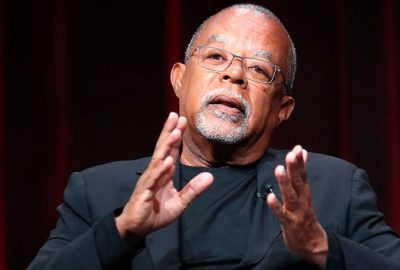 How Henry Louis Gates, Jr., Helped Remake the Literary Canon. By David Remnick / The New Yorker
How Henry Louis Gates, Jr., Helped Remake the Literary Canon. By David Remnick / The New Yorker
As a literary critic, Gates made an impact on the field by helping to establish a canon of African American literature—one that was neither separatist nor a mere appendage to the traditional, white canon. Perhaps his most important and lasting role has been as a teacher and an institution builder. Gates arrived at Harvard in 1991, and he swiftly recruited an extraordinary concentration of Black scholarship—William Julius Wilson, Cornel West, Lawrence D. Bobo, Evelyn Brooks Higginbotham, Suzanne Blier, and others—all while reinvigorating the W. E. B. Du Bois Research Institute, which is now part of the Hutchins Center. Gates proved a dynamo of both intellectual energy and fund-raising finesse. Read more
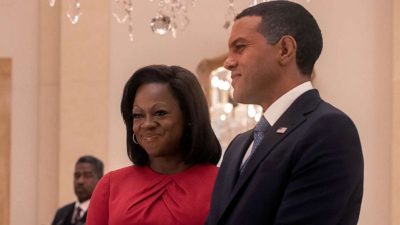 See Viola Davis as Michelle Obama in ‘The First Lady’ trailer. By Carson Blackwelder / ABC News.
See Viola Davis as Michelle Obama in ‘The First Lady’ trailer. By Carson Blackwelder / ABC News.
The official trailer for “The First Lady” is finally here. The Showtime series stars Viola Davis as Michelle Obama, Michelle Pfeiffer as Betty Ford and Gillian Anderson as Eleanor Roosevelt. The series features the iconic former first ladies navigating the complexities of their demanding role while maintaining their individuality. “In four years, I don’t want to look back and think, ‘What did I become living in that house?'” Davis’ Obama says at one point, later adding, “I will pick my team, choose my causes. Understood?” Read more
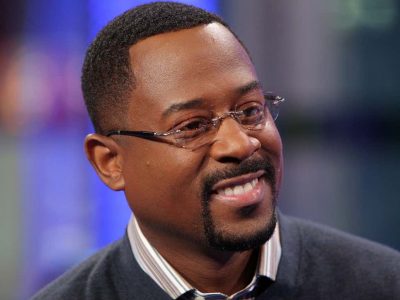 After 30 Years, The Cast of Martin Is Back To Ask, “How Y’all Feel?” In Upcoming Reunion Special. By Alexander Jane / The Root
After 30 Years, The Cast of Martin Is Back To Ask, “How Y’all Feel?” In Upcoming Reunion Special. By Alexander Jane / The Root
In a world of unwanted samples, reboots, and reunions, there’s one show the culture has actually been asking after for decades. After 30 years, the cast of Martin will be making a return to the small screen for a BET+ reunion special. The show will be hosted by actor and comedian Affion Crockett, and will feature most of the stars from the original cast including; Martin Lawrence, (Martin), Tisha Campbell, (Gina) Tischina Arnold, (Pam), and Carl Anthony Payne II, (Cole). Unfortunately, Thomas Mikal Ford who played “you ain’t got no job,” Tommy, passed away in 2016. Read more
 A Black explorer journeys to depths of ocean in search of lost slave ships. Deena Zaru & Nicole Curtis / GMA
A Black explorer journeys to depths of ocean in search of lost slave ships. Deena Zaru & Nicole Curtis / GMA
A trip to the Smithsonian’s National Museum of African American History and Culture launched journalist Tara Roberts on a journey into the depths of the waters to tell the story of a group of Black scuba divers searching for lost slave ships. Roberts, the first Black explorer and storyteller on the cover on National Geographic, followed the scuba diving team at Diving With a Purpose on their quest to document and identify sunken slave shipwrecks around the world. She spoke with “Good Morning America” co-anchor Robin Roberts about her journey and how it has shaped her understanding of Black history. Read more
Sports
 How Loretta Lynch Found Herself, And The NFL, On The Wrong Side Of History. By Stephen A. Crockett Jr. / HuffPost
How Loretta Lynch Found Herself, And The NFL, On The Wrong Side Of History. By Stephen A. Crockett Jr. / HuffPost
The first Black female attorney general was once a crusader for civil rights. Then she joined her current law firm, and things changed.
The NFL has always been a bastion of white supremacy that preserves racial privilege and insulates itself from real consequences. NFL owners are only accountable to themselves. The owners pay the NFL commissioner. As such, NFL owners have ignored Black ownership inquiries; they’ve ignored qualified Black men looking to become head coaches; they’ve even ignored Black protests. As the old Kanye might have said, the NFL doesn’t care about Black people. The point is, the NFL has a huge race problem, and it’s upsetting to see the first Black female attorney general now arguing on the wrong side of history. Lynch had been a crusader for civil rights until 2019, when she joined her current law firm. Then things changed. Since then, she’s became the go-to attorney to defend large companies against claims of racism. Read more
 Goodell, civil rights leaders discuss diversity in NFL leadership positions. By AP and NBC News
Goodell, civil rights leaders discuss diversity in NFL leadership positions. By AP and NBC News
NFL Commissioner Roger Goodell and a few team owners and executives met Thursday with civil rights leaders, who urged the league to make drastic changes to its hiring practices to improve diversity in leadership positions. Goodell was joined on the video call by Pittsburgh Steelers president Art Rooney II, Atlanta Falcons owner and chairman Arthur Blank, Arizona Cardinals owner Michael Bidwell, Baltimore Ravens executive vice president Ozzie Newsome, Houston Texans limited partner Javier Loya, and other top NFL executives. National Urban League president and CEO Marc H. Morial told the group the NFL’s focus on racial equity and social justice recently hasn’t yet resulted in improved hiring procedures for the league’s head coaches. Read more
 Jeremy Lin reflects on ‘Linsanity’ 10 years later, gets candid about ‘big regret.’ By Kimmy Yam / NBC News
Jeremy Lin reflects on ‘Linsanity’ 10 years later, gets candid about ‘big regret.’ By Kimmy Yam / NBC News
Lin, the first Taiwanese American in the NBA, looked back on his meteoric rise in the 2012 season with the New York Knicks, which led to a personal and public racial reckoning.
Point guard Jeremy Lin’s meteoric ascent across more than two dozen games in the 2012 NBA season — beginning in February of that year and dubbed “Linsanity”— triggered a movement of pride so palpable in the Asian American community that it went far beyond the physical arenas he played in, expanding past the confines of sports. And for Lin, the first Taiwanese American in the league who was a point guard for the New York Knicks at the time, talk of the era revives some bittersweet reflections. Read more
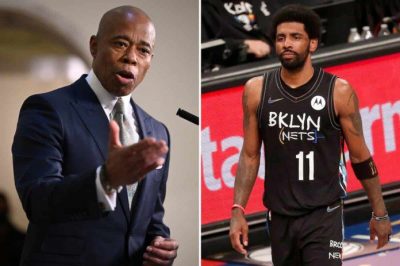 NYC Mayor Eric Adams says vaccine mandate holding out Kyrie Irving is ‘Unfair’. By Yakshpat Bhargava / First Sportz
NYC Mayor Eric Adams says vaccine mandate holding out Kyrie Irving is ‘Unfair’. By Yakshpat Bhargava / First Sportz
Kyrie Irving has faced a lot of backlashes due to his vaccination stance, especially in the early days of the 2021-22 season. But now being available for the team on part-time basis, it seems like the Brooklyn Nets are struggling to cope in his absence. As a result of which New York City Mayor Eric Adams has revealed his opinion upon the same. Adams suggested that the mandate that allows unvaccinated out-of-towns player to participate in the game out of the city. But bans the same personnel to not participate in game in the city in ‘unfair’ to New York teams. Read more
Site Information
Visit our home page for more articles, book/podcast and video favorites. And at the top of this page register your email to receive notification of new editions of Race Inquiry Digest. Click here for earlier Digests.
About Race Inquiry and Race Inquiry Digest. The Digest is published on Mondays and Thursdays.
Use the buttons below to share the Digest in an email, or post to your Facebook, Linkedin or Twitter accounts.